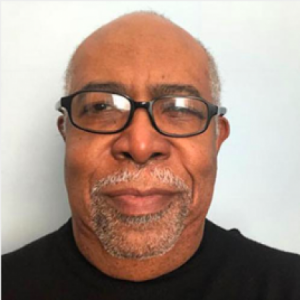Reginald Parquet
Clinical Assistant Professor

Biography
Dr. Parquet is a Professor at the Tulane University School of Social Work where he has taught for the past 19 years. He has taught graduate courses in research, professional development, advanced practice methods, human behavior theory, youth violence, diversity and social justice, capstone, and field practicum. Dr. Parquet also teaches two undergraduate courses, “Guns and Gang” and “Booze, Pot, Coke, Crystal Meth: PolyDrug Abuse among College & Inner-City Residents,” that are the two largest classes on Tulane’s campus. Dr. Parquet has served as Superintendent of Louisiana Training Institute-East Baton Rouge, the largest juvenile correctional facility in the state of Louisiana, Director of the Division of Institutions, Office of Juvenile Justice and statewide Director of the Mental Health Rehabilitation Program. He is a licensed clinical social worker, board approved clinical supervisor, and has over thirty-eight years of experience in the field of behavioral health providing clinical, administrative, and programmatic leadership. He has been designated a court expert witness in mental health and substance abuse. He serves on numerous boards and committees and has had multiple program responsibilities for designing, implementing, evaluating, managing, and overseeing statewide programs. His current research interests are in community mental health, substance abuse, youth violence, and mental health issues affecting at-risk populations utilizing a strengths perspective and capacity building.
Education
Tulane University
Xavier University of Louisiana
Tulane University
Articles
Public Housing Residents Making Their Courtyard Safe From Drugs
2008
This pilot study examines how children and their caretakers who live in public housing experience and manage drug activities that surround them. Consistent with social disorganization/collective efficacy models and defensible space theory, findings from 2 focus groups suggest that monitoring children, shared values about parenting, and screening strangers entering the community helped residents establish a safe environment with healthy principles. Residents insulated their courtyard neighborhood from outside public housing residents, presumably to minimize competition over resources and restrict what they see as negative influences. Social work community practitioners need to tap into the collective efficacy of these vital neighborhoods to help the broader public housing community.
The Youth Video Project: An Innovative Program for Substance Abuse Prevention
2008
This article describes an innovative drug prevention pilot in which developing a substance abuse video served as a vehicle for teaching youth healthy attitudes and behaviors. Seven 10- to 12-year-old African Americans from a public housing development participated in 10 weekly sessions focusing on video skills and substance abuse. Based on the principles of capacity building and cognitive dissonance theory, the children learned about substance abuse in their community and movie-making, which they used to created an antidrug video. Six activities were identified as critical to the program's success: family involvement, community engagement, adapting drug education content to fit community characteristics, using the camcorder as a central vehicle for learning, community field assignments, and evaluation-based learning.
Media Appearances
Iconic local grocery store’s doors have closed
“It was ahead of its time because of its ‘one stop shop’ concept and business model, “Parquet told The Louisiana Weekly. “That business model was attractive not only to the African-American residents in Treme and the 7th Ward, but also to the Greater New Orleans area. … [T]he Circle Food Store was not just a place to ‘make groceries’ and purchase goods and services, it was also a gathering place where African Americans greeted each other, socialized and engaged in conversations around cultural and social issues that were important to them.
Experts debate the connection between heat and homicide
“We’re hot most of the year. It’s a factor. It tends to increase the emotionality of people it tends to make us a little more irritable and less tolerant,” says Professor Reginald Parquet, of Tulane University’s School of Social Work.
